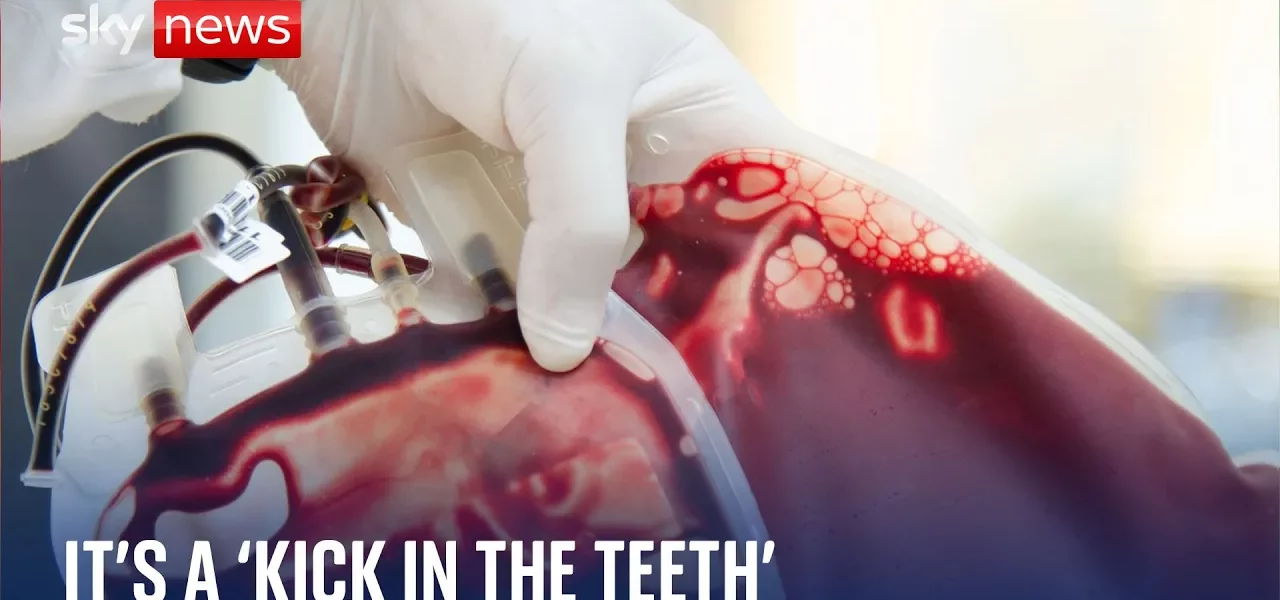Glenn Wilkinson’s Fight Against Hepatitis C: The Infected Blood Scandal

Discover the harrowing journey of Glenn Wilkinson, a victim of the infected blood scandal, as he battles the consequences of contaminated blood products and advocates for justice on behalf of thousands affected.
Introduction to the Infected Blood Scandal
The infected blood scandal represents one of the largest medical tragedies in recent UK history. It involved the distribution of contaminated blood products to hemophiliacs and other patients, leading to thousands being infected with viruses such as hepatitis C and HIV. Glenn Wilkinson’s story is a poignant example of how this scandal has irrevocably altered lives, as he navigates the challenges of living with liver disease and the repercussions of aggressive cancer treatments.
The Personal Impact on Victims
Glenn Wilkinson is one of approximately 30,000 victims affected by the infected blood scandal. His life took a devastating turn following a routine dental procedure that utilized contaminated blood products, resulting in his infection with hepatitis C. This virus not only led to severe liver disease but also necessitated extensive chemotherapy treatments, which Glenn describes as a grueling experience.
Health Challenges
Living with hepatitis C comes with numerous health challenges, including:
- Chronic fatigue and weakness
- Liver damage and potential liver failure
- Increased risk of liver cancer
- Emotional and psychological toll due to illness
Long-Term Treatment and Recovery
Glenn’s treatment journey has been lengthy and exhausting. He recalls the toll of undergoing multiple rounds of chemotherapy over several years, stating that it left his body in a “terrible state.” The emotional and physical strain of such treatments is a significant aspect of the survivor experience.
Government Response and Compensation Issues
In May, after decades of advocacy, Sabrian Langstaff published a report that called for immediate compensation for victims of the infected blood scandal. However, many survivors, including Glenn, feel betrayed by the government’s response, particularly regarding the compensation amounts offered.
Compensation Disparities
The frustration among victims stems from the perceived inadequacy of the government’s compensation packages. The following points summarize the key concerns:
- Lower payments compared to other infected victims.
- Feelings of outrage and betrayal after years of fighting for justice.
- Calls for a more equitable compensation structure that reflects the severity of their conditions.
Government Assurances
The government has stated it accepted almost all of the 74 recommendations from consultations with victims, including:
- Continuing current support scheme payments alongside compensation.
- Providing a social impact award for those affected by stigma.
- Offering an additional £15,000 for individuals subjected to medical experiments without their consent.
Despite these assurances, many victims remain skeptical about the implementation of these measures and the adequacy of the compensation amounts.
Voices of the Victims
Richard Warick, another victim of the infected blood scandal, shares a similar sentiment. As a child, he was part of a secret trial that led to his infection with HIV and hepatitis B. Richard’s remarks about the compensation figure of £115,000 highlight the discontent felt by many in the survivor community:
“I don’t know where they’ve got this £115,000 figure from. It seems exceptionally low for what was done to us as children.”
Victims like Richard emphasize that the compensation should reflect the long-term impacts of the scandal, including the emotional and psychological trauma associated with their experiences.
Conclusion and Call to Action
The infected blood scandal continues to cast a long shadow over the lives of its victims. While some have found closure, many, like Glenn and Richard, are still fighting for justice and appropriate compensation. It is crucial for society and the government to recognize the suffering endured by these individuals and to ensure that their voices are heard in the ongoing discussions about reparations.
As we reflect on these stories, let us advocate for fair treatment of all victims. For those looking to get involved or learn more, consider reaching out to support organizations that are dedicated to helping victims of medical negligence and advocating for justice.
“`




